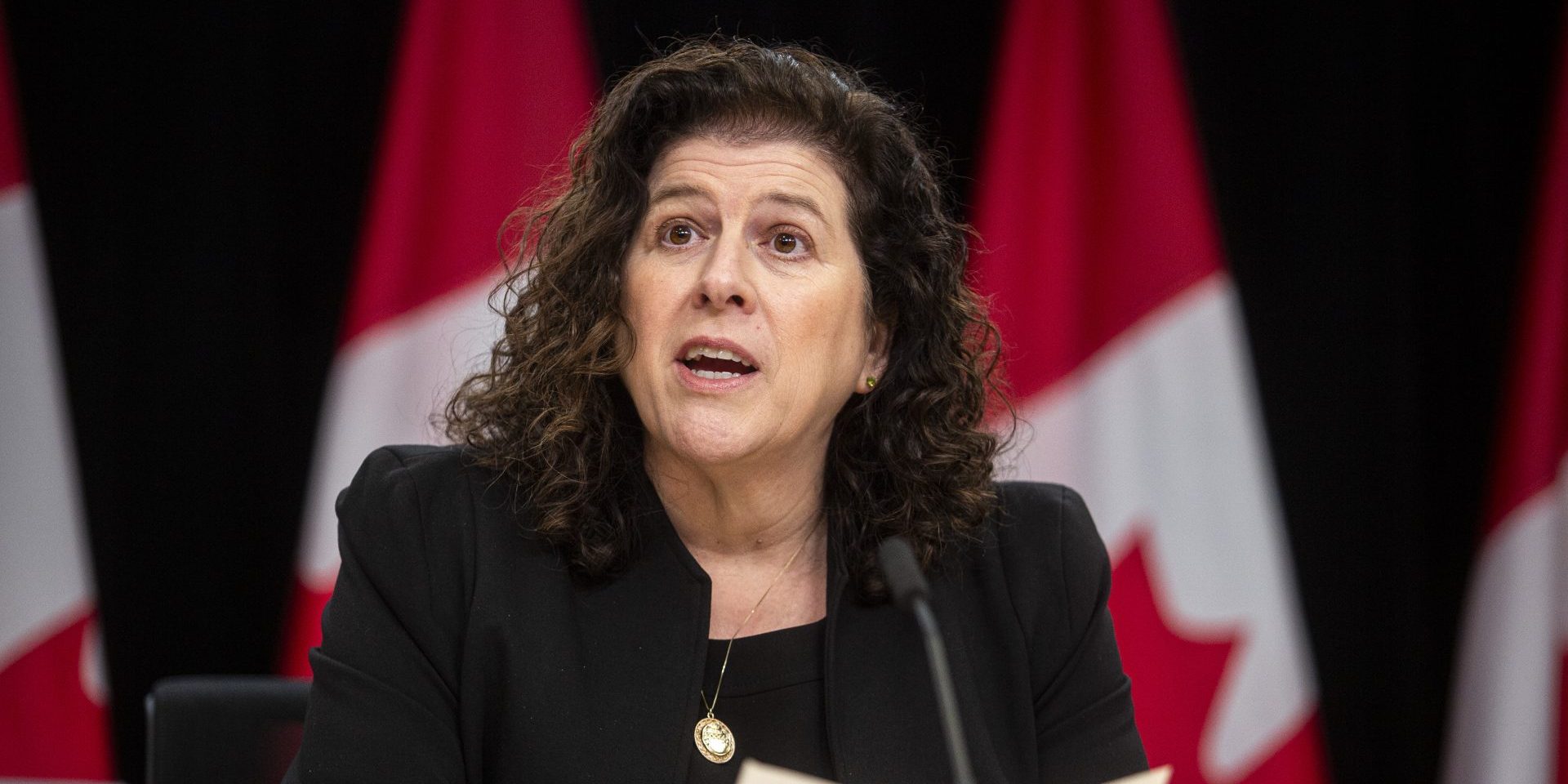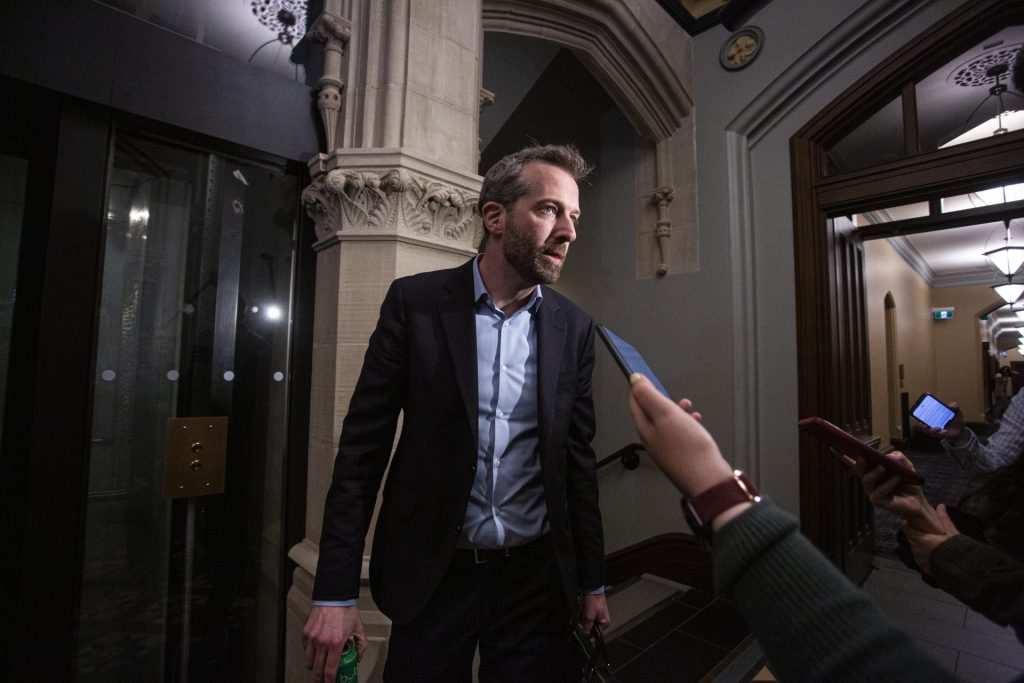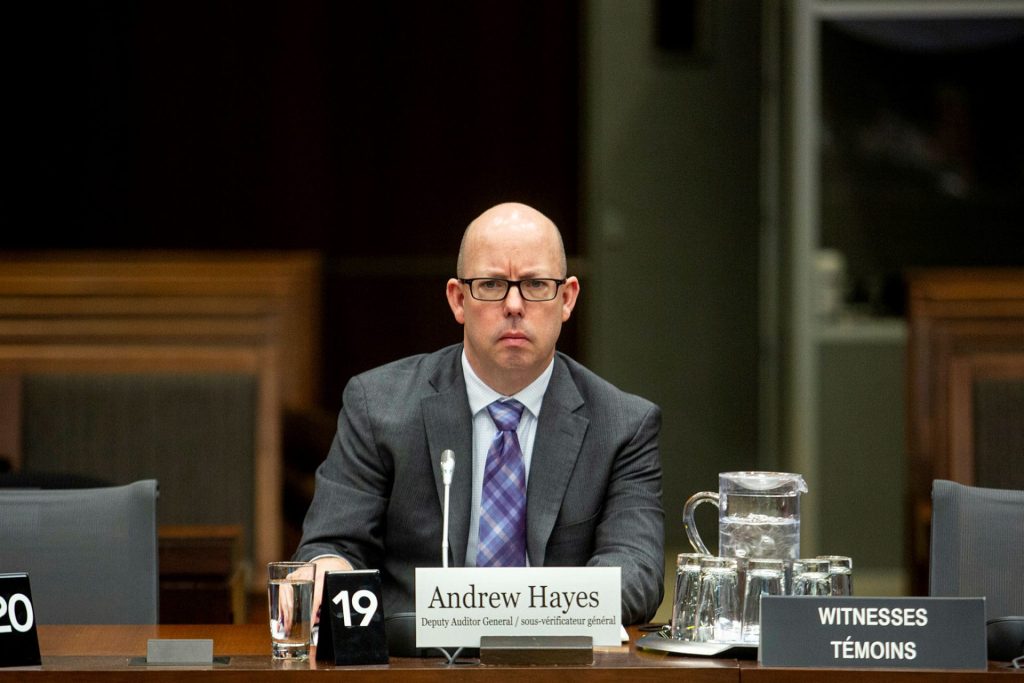‘Too many rules’: AG urges feds to streamline procurement, reduce outsourcing

Canada’s Auditor General Karen Hogan says the federal government’s procurement woes may be stemming from “too many” overlapping rules, and urged the government to streamline its processes.
Hogan appeared before the House Public Accounts Committee on June 19 to answer MPs’ questions about the findings of her latest report. Her June 10 report concluded that federal departments “frequently disregarded procurement rules” in professional services contracts awarded to Ottawa-based IT-staffing firm GC Strategies between 2015 and 2024.
The report did not include any recommendations—unlike the office’s previous procurement audits—and highlighted that there is no need to introduce any more procurement rules to address long-standing issues.
However, Hogan told MPs the government should examine streamlining its procurement processes, and investigate the underlying behavioural patterns within the public service that contribute to errors and questionable contracting decisions.
The government needs to figure out if there are “too many rules,” and if so, remove duplication or rules “that aren’t adding any value,” she said, “so that this can be a faster process in the future.”
Public Services and Procurement Canada (PSPC) said in a statement it has addressed Hogan’s recommendations raised in previous audit reports, and has taken concrete actions to strengthen oversight on all professional services since November 2023. Those reforms include improving evaluation requirements to ensure resources are qualified, requiring further transparency from suppliers around their pricing and use of subcontractors, and improving documentation when awarding contracts, issuing “task authorizations,” and clarifying requirements of the work.
The department is the central purchaser for the federal government managing approximately $37-billion every year on behalf of departments and agencies. Over the last couple of years, PSPC has faced increased criticism due to a series of contracting controversies, political scrutiny, committee showdowns, scathing watchdog reports, a historic admonishment of a contractor, and multiple RCMP investigations.
New Government Transformation and Public Services and Procurement Minister Joël Lightbound (Louis-Hébert, Que.) previously told The Hill Times that streamlining the process is a top priority for him, as well as reducing reliance on consultants. He also said the government plans to build in-house expertise within the public service, and use AI to drive modernization and boost efficiency—all while enforcing existing rules.

Hogan suggested that the complexity of the procurement system may be a driver for some public servants to bypass rules in some cases.
“More rules are constantly added, and, eventually, it just becomes too much for people to be able to apply with due diligence,” she said.
“I don’t need to say to the public service and the government to follow their own policies. So, I encourage them to really evaluate the root causes of our observations because these are worrying observations,” she said, recommending better training and clearer reminders could support compliance.
Hogan’s June report is just the latest in a chain of audits stemming from intense parliamentary scrutiny of federal procurement, much of which was triggered by the ArriveCan controversy. Both the House Government Operations and Estimates Committee, and the Public Accounts Committee had studied the matter during the previous parliamentary sessions.
Conservative MP Stephanie Kusie (Calgary Midnapore, Alta.), who took part in both studies, pressed Hogan as to whether “this Liberal government incapable of following and enforcing the rules?”

Hogan said she does not expect a minister to be involved in day-to-day procurement practices, but noted they still have a responsibility to work with their deputies to ensure rules are followed, and value for money is delivered. Before Lightbound was appointed to the role in Prime Minister Mark Carney’s (Nepean, Ont.) post-election cabinet, PSPC was briefly overseen by Ali Ehsassi (Willowdale, Ont.) from March to May, and before that by Jean-Yves Duclos (Québec Centre, Que.) since July 2023.
Dig into overuse of staffing firms, says Hogan
Hogan told MPs that most public servants she met during her investigations want to do right by Canadians, but the urgency to deliver services may be driving some to bypass complex rules—a finding she said calls for further analysis from the government. “I think going back to the basics and understanding the rules is essential,” she said.

Speaking at the same committee, Deputy Auditor General Andrew Hayes said “simplification” would be a big help to public servants.
Hayes cited the findings of a 2024 investigation that looked into $200-million worth of federal contracts awarded to McKinsey and Company which found “a frequent disregard of federal contracting and procurement policies. He said understanding how things like standing offers and competitive contracts are used in procurement, “can make it easier for the public service to understand, and by virtue of that, follow the rules.”
Hogan also pointed to the frequent use of staffing firms in IT-related professional services contracts as one of the areas that needs probing.
“What is it about the procurement process in the federal government that a staffing company is the mechanism that is typically used for IT services?” she asked, further questioning whether this stems from the complexity of procurement, or from vendors not wanting to wade through the burdensome process and preferring to go through a staffing firm to secure government contracts instead.
“I do think that that’s something that the government needs to figure out,” she said.
‘A pandemic is not a reason to forget certain basic rules’
Liberal MP Kristina Tesser Derksen (Milton East—Halton Hills South, Ont.), asked Hogan whether factors like the pandemic might explain why departments failed to follow procurement rules.
Hogan pushed back, reiterating that “a pandemic is not a reason to forget certain basic rules,” and noted that her audits covered the period between 2015 to 2024. “What we found is that some of these rules were ignored, not just during that period, so it was before and after.”
GC Strategies—the subject of Hogan’s audit—was the firm hired as the primary contractor for the COVID-era ArriveCan application that became mired in controversy for allegations of procurement misconduct. Hogan’s audit took a broader view of the company’s history with the government and found 31 different federal organizations issued 106 professional services contracts to the firm over nine years for a total of value of $92.7-million. Hogan found departments ‘frequently did not demonstrate value for money,’ often giving little evidence to the required services were received, and security requirements were not enforced.
PSPC has banned the firm from entering into contracts with the government for seven years.
When Derksen questioned if the problems Hogan found were more prominent in any time period, Hogan rejected the suggestion, emphasizing the problems are systemic.
“There were 31 federal organizations, and we had a concern with every contract that we looked at. So I don’t think you want to link it to time periods,” she pushed back, calling the issues “more pervasive,” making it important to figure out “why that behaviour is happening.”
The Hill Times






 LICENSING
LICENSING PODCAST
PODCAST ALERTS
ALERTS













